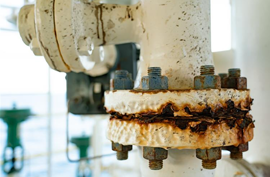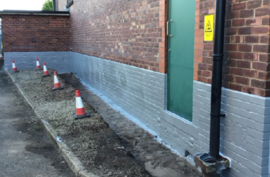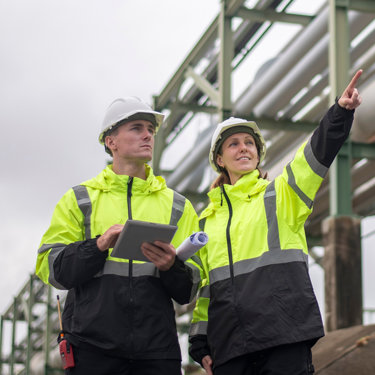Protecting an ecological haven: Oil spill at Poole Harbour triggers major incident response
Published: 7 June 2024
The problem
On 26 March 2023, the tranquil waters of Poole Harbour, the largest natural harbour in Europe and a Site of Special Scientific Interest (SSSI), faced a significant environmental threat.
Reports of oil sighted in the Ower Bay area of Poole Harbour raised alarms. Additionally, a pressure drop in an underground export pipeline signaled a potential oil spill incident. Poole Harbour Commissioners (PHC) activated their oil spill contingency plans and enlisted the expertise of Adler & Allan and Oil Spill Response Limited respectively to initiate cleanup operations.
The importance of this ecological haven cannot be overstated. The area, an internationally significant site for wildlife conservation, hosts endangered red squirrels and is home to numerous nature reserves, including Studland and Godlingston Heath National Nature Reserve.
A major incident status was declared after confirming the release of reservoir fluid containing 85% water and 15% crude oil. The spill had unfortunately impacted the shoreline of Poole Harbour and some of its pristine islands within.
The solution
An incident room was established and everything was managed from that room. The project was a well-coordinated effort involving many different parties - dozens of people had a say in how the incident was managed and the Strategic Coordination Group was set up to help focus efforts.
Each day involved a shoreline cleanup assessment to check for oil impact, and we would then instigate targeted actions to address that impact. We then produced proposals on how we could help navigate the incident to conclusion in a controlled and timely manner. We were able to bring the vision, strategy, and knowledge required to help those involved through the process.
The next stage was the process of restoring the site back to an acceptable state – ideally as close to pre-incident as possible. The goal was clear: to address the incident while minimising the impact on this area of outstanding natural beauty.
The first step of the investigation and assessment work we undertook was establishing where we should respond and what we investigate – and that hinged on good data. We drew on data from water samples and boreholes we deployed in the early stages to inform the remediation strategy we undertook.
Around 40-50 metres of land were intensely impacted by the spill. Given the sensitive nature of the habitat, a large-scale aggressive remediation programme wasn’t feasible – it would destroy the habitat. Various response strategies were proposed and evaluated, leading to the identification of the most suitable approach in consultation with all stakeholders.
Comprehensive remediation actions were undertaken to mitigate the spill's effects as part of a longer-term environmental risk reduction strategy. A combination of booms, skimmers, and pumps were employed on site to focus the oil into a place where it could be more easily removed, and effective strategies for cleaning up affected shorelines were developed and executed.
Comprehensive Shoreline Cleanup Assessment Team (SCAT) surveys were conducted by boat and on foot to assess the extent of the damage. Aerial surveillance was carried out using unmanned aerial vehicles (UAVs), fixed-wing aircraft and rotary aircraft to monitor the affected areas from above, allowing for precise real-time data collection and analysis to inform response strategies.
Project outcomes
- Poole Harbour, an ecological gem, was preserved through an integrated response, enabling the sharing of technical expertise and real-time information to achieve the common goal of minimising environmental impact.
- Response teams including incident managers and technical advisors arrived on scene within 1.5 hours after mobilisation.
- No lost time safety or environmental incidents were reported through the duration of the project, underscoring the effectiveness of the incident management plan and the training of those involved.
- Our expertise was a key success factor, reflected in the fact that the initial advice we gave was correct and based on our collective skills, knowledge, and experience of handling large-scale projects such as this one.
More from our Knowledge Hub
 Insights
InsightsEarth Day 2025: Enabling a sustainable future while supporting today’s infrastructure in an evolving energy landscape
 Insights
InsightsMitigating climate change risks through planned preventive maintenance
 Insights
InsightsProtective coatings: Safeguarding infrastructure against climate change
 Insights
InsightsDelivering the Water (Special Measures) Act: Supporting compliance and innovation
Environmental compliance today, creating a sustainable tomorrow
Helping you reduce risk to the environment and your operation by managing assets compliantly while achieving commercial, ESG, and net-zero goals.
Contact our experts





